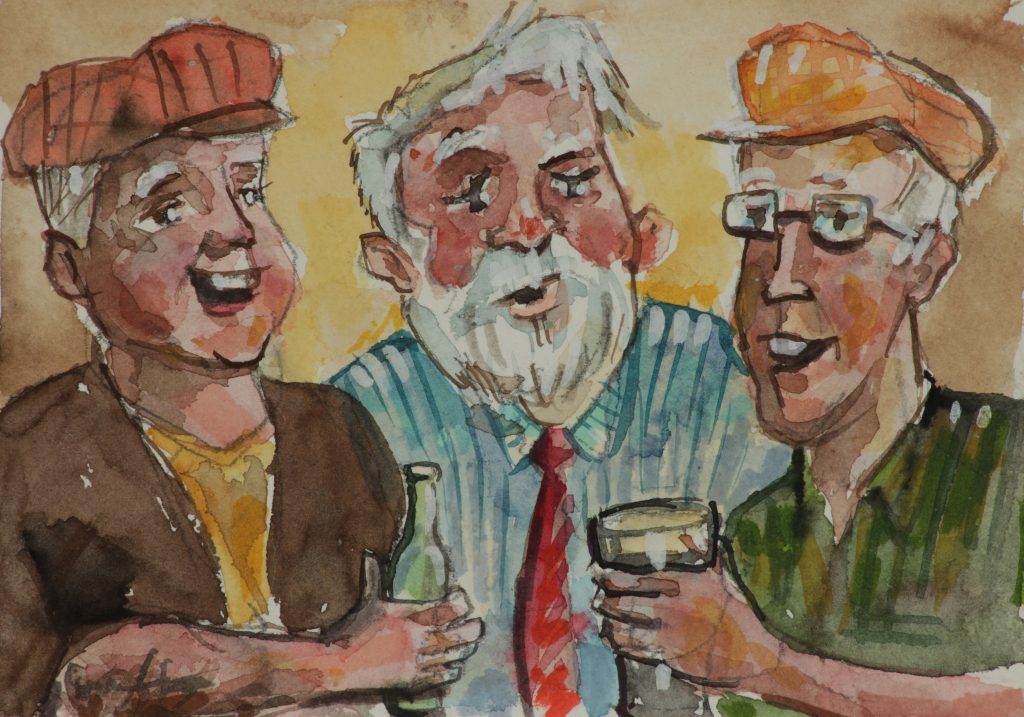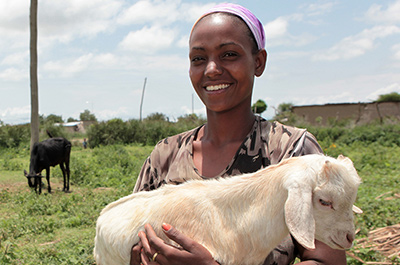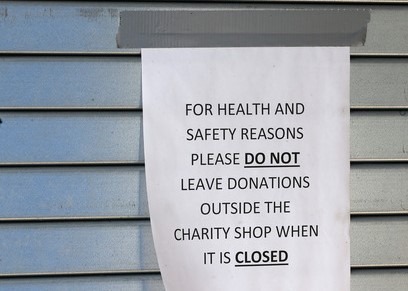When in the eye of the storm, the only thing you can do to save yourself is send out an SOS. That is exactly what the Jack & Jill Foundation did.
During the lockdown, you may have heard an advertisement broadcast on radio or television asking people to donate to the Jack & Jill Foundation, a charity that provides home nursing care and end-of-life service for 340 sick children aged up to five, and their families, across Ireland. This latest appeal sounds different, though.
“Our fundraising has been absolutely devastated,” the charity’s founder Jonathan Irwin says in its recent “SOS appeal for donations”, referring to the impact of Covid-19.
Charities rely heavily on fundraising and donations from the public to keep their services going. The Jack & Jill Foundation raises approximately 75 per cent of its money through community events and bucket shaking. With a lockdown in place to curb the spread of the virus, there are no buckets on the streets and no physical fundraising events taking place. The other 25 per their finances comes from an HSE grant. This funding is not under threat, according to the charity’s CEO Carmel Doyle.
“Once Covid-19 hit, all our community fundraisers, from schools to tractor runs to lunches, everything was cancelled,” says Doyle. She adds that the foundation had to shut down its nine charity shops temporarily, as many other charities had to do. They plan to re-open these shops on June 8.
The Jack & Jill Foundation brought in a total income of €4.2 million in 2019. Its budget for 2020 was higher at €4.4 million because it wanted to extend services to children up to the age of six due and meet increased needs. The charity currently has a pilot scheme under way for children aged from birth to six.
Reaching that goal is now proving more difficult. “That fundraising challenge is now so much harder due to Covid-19. Our target for fundraising has been decimated for the year,” says Doyle.
“We’re one of those charities that have to raise over 75 per cent of what we need ourselves. We’re so dependent. When something like that [Covid-19] hits, the sustainability of the charity comes into question,” she adds.
We are under pressure to think creatively about how to achieve our fundraising targets in the current climate
Jennifer Kitson
The charity is projecting a shortfall of €500,000 for this year. This money will be lost due to event cancellations during the lockdown. This means that instead of an increase from €4.2m to €4.4m in income this year, it will end up with a drop to €3.7 million at best.
The move to online
The Jack & Jill Foundation needed to act quickly. Like so many charities, its service has become essential to families across Ireland, caring for extremely sick children.
During the course of the lockdown, approximately 30 per cent of families using the Jack & Jill Foundation service are still in receipt of the charity’s home nursing care support. For other families, the care delivered has been tailored. For those in self-isolation, Jack & Jill’s specialist children’s nurses provide support by phone, text, video calls and conversations over garden walls.
“We can’t do what we do via email or letter. Our priority is to stay connected with families and to support them through this challenging time, with more families expected to resume home visits over the summer months,” says Doyle.
The change in delivery model means the number of home nursing hours the foundation funds is down, which will be reflected in costs and that will balance the budget out. The government wage subsidy scheme meant it did not need to let anyone go either.
Physical fundraising may have come to a halt, but the Jack & Jill Foundation needed to find a way to receive donations without going out into the community. That’s why it is pushing its presence online by posting its SOS appeal for donations across social media.
The foundation’s supporters came up with creative ways of raising funds virtually. Dundalk goalie Gary Rogers virtually auctioned two of his jerseys online for the Jack & Jill Foundation.
Running challenges have provided donations to organisations like the Jack & Jill Foundation. People would run a certain amount, donate to a charity and then post it on their social media pages. Charities have become beneficiaries of challenges such as “Run 2k in May” and “Run 5k, Nominate 5 people and Donate €5”, which have become popular during the lockdown.
The charity was able to salvage one of its fundraisers during this lockdown by putting it online. The Incognito Art Sale wasn’t cancelled by Covid-19, but instead moved from a gallery to an online sale. The first art collection sold out in 15 minutes on April 24. The second part of the event took place yesterday on May 28 and sold out in 28 minutes.

This initiative is using the hashtag Art4Care and Doyle says it’s “turning art into a real currency for care.”
The “incognito” twist is that the identity of the artist won’t be revealed until the successful purchaser receives their art in the post, with the artist’s signature on the back of the artwork. Each piece is worth €50 and equates to three hours of specialist home nursing care for one family.
The total amount raised by by both sales came to €140,000. Law firm William Fry was also a sponsor of the initiative.
Other charities are feeling the pressure
The lockdown is creating financial disruption for the Society of Saint Vincent de Paul, too.
The charity has 234 shops, 10 hostels, a number of resource centres and holiday break homes around the country as well as breakfast clubs and homework clubs – all of which have stopped operating because of the lockdown. Income from the shops has stopped and volunteers are unable to fundraise or collect at the clubs they host.
One of the main ways the organisation received donations was at the church gate. However, there are no longer public masses in communities.
The lockdown has not only affected the charity’s income and fundraising, but also how it operates. The main work of the society is visitation – visiting people in their homes or in hospitals or people in emergency accommodation. This, of course, is not possible for some who seek the services of Saint Vincent de Paul as often they are elderly and are vulnerable to the virus, according to the charity’s spokesperson Jim Walsh.
Saint Vincent de Paul receives very little from the government, says Walsh. The only grants tend to be for activities such as running homeless services and hostels, which is a small portion of the charity’s work.
To tackle the challenge of Covid-19, Saint Vincent de Paul also launched an appeal for donations across media platforms. The appeal states that “when Covid-19 is over, there will still be people struggling, as there are at the moment,” says Walsh.
“In March of this year, the society received something like 15,000 calls for help,” he adds.
Fundraising may have dropped by 15 to 20 per cent for the charity, but Walsh is optimistic there won’t be long-lasting consequences for the charity. “Saint Vincent de Paul has been around for 175 years, through two world wars, a famine and a number of economic upheavals and it’ll be around hopefully for another 175 years,” he says.
*****
For Self Help Africa, a charity that provides agricultural support and training in Africa, the Covid-19 impact has been much larger.
Being an international organisation, its events scheduled in Ireland, the US and the UK have had to be cancelled by virtue of the lockdown and travel restrictions. Fundraising at sponsored walks, runs and galas is not possible at this time.
As a larger multinational charity, however, it is less dependent on physical fundraising and take a lot of donations online already.

“Regular giving hasn’t really been adversely affected to this point. That’s people who have regular direct debits,” says Self Help Africa’s head of communications George Jacob.
“Increasingly for the past number of years, there has been a significant growth in online donations and people giving that way,” he adds.
Fundraising aside, the charity has had to modify the work it does because of Covid-19 restrictions across the continent of Africa. Large-scale training programmes aren’t able to go ahead, but smaller training events and activities have been able to continue.
Self Help Africa was fortunate as it entered a fundraising campaign with Glenisk yoghut for 2020, which will bring in funds without physically holding events.
The campaign called One Million Trees can be seen on seven million Glenisk yoghurt pots at the moment. With every purchase, a contribution goes to Self Help Africa.
*****
The Simon Community is feeling the pressure financially too, with the absence of physical fundraising.
“Restrictions on gatherings and movement have also curtailed a lot of our traditional fundraising activities. It is absolutely vital for the wellbeing of our clients that we raise the funds we need to run our services,” says Jennifer Kitson, National Partnerships Manager for the Simon Communities.
The charity gives aid to those who are homeless, one of the most vulnerable groups for contracting the virus. This means the charity needed to change how it operates, which led to an increase in costs.
“The ongoing cost of PPE presents a huge challenge for many of our frontline services and we are performing extensive cleaning and health and safety regimens to prevent the spread of the virus,” says Kitson.
“We are also seeing an increase in demand for services like our Food Banks for example, with many new clients turning to us for help due to job losses and higher utility and grocery costs from families being at home,” she adds.
The Simon Community has had some success with virtual fundraising such as the Live Aid Ireland event recently.
“We are under pressure to think creatively about how to achieve our fundraising targets in the current climate,” says Kitson.
*****
Fundraising took a big hit at Trócaire, a charitable arm of the Catholic Church that focuses on humanitarian development overseas.
The lockdown has created problems for the organisation’s most popular fundraising initiative, the Lenten Appeal, a campaign organised around the Christian tradition of sacrificing something for 40 days leading up to Easter Sunday.
When the government began unravelling lockdown restrictions just before St Patrick’s Day, people were still putting money in their Trócaire boxes. The collection of these boxes has been postponed until further notice and all events planned around the campaign were cancelled due to lockdown. These included talks and exhibitions where further donations could be collected.
“People all over Ireland fill their Trócaire boxes to support the world’s poorest people, but the closure of schools and churches means that support is not getting through. Thousands of boxes are sitting in homes across Ireland. Unless these generous donations are returned, we won’t be able to provide life-saving support to some of the poorest people in the world,” says Trócaire CEO Caoimhe de Barra.
Trócaire raises approximately €8 million each year during the entire Lenten Appeal campaign. Two-thirds of this money comes from Trócaire boxes distributed through schools and parishes.
“Unless donations from the boxes are returned, Trócaire is facing a massive funding crisis that will directly impact the three million people who rely on our work overseas,” a recent statement from the charity reads.
Trócaire is, like most other charities, looking for online donations to make up for the lack of face-to-face fundraising. Those in the charity are asking people to estimate what is in their box and donate the equivalent amount online, over the phone or through the post.
This funding crisis comes at a time when Trócaire is working to reduce the spread of the Covid-19 in all countries where they work.
“People in countries like Somalia and South Sudan are incredibly vulnerable to this virus, while lockdowns and travel restrictions have plunged millions more into extreme poverty,” says de Barra.
*****
Humans are not the only ones affected by the dive in charity fundraising brought on by the pandemic.
Dogs Trust will come under pressure to care for abandoned dogs as fundraising activities planned by the organisation had to be cancelled or put on hold.
“We cannot turn our backs on the dogs who need us. We are urgently appealing to the dog loving community for their help to be able to continue to save Ireland’s abandoned dogs through these uncertain times,” says Dogs Trust Communications Manager Corina Fitzsimons.
Dogs Trust receive no government funding meaning it is quite dependent on donations.
The shortfall in fundraising will put huge strain on the work the organisation does, predicts Fitzsimons.
To tackle the current crisis in fundraising and support services, the organisation sent out a Crisis Appeal in the post asking people to donate €25 “to save a dog’s life” on May 2.
“Dogs will continue to be abandoned and we need to make sure we can be there for them. Please give €25 today to save more lives,” reads the written appeal.
Supporters of Dogs Trust can donate €25, €50, €100 or their own gift amount through the Crisis Appeal.
Those that can do more than donate money are being asked to take part in the Dogs Trust Frontline Foster Care. Through this service, volunteers would foster dogs belonging to frontline workers to help alleviate the stress of looking after a pet during the pandemic.
Before the organisation was set up, an estimated 48 abandoned dogs were put to sleep each day.
Although dogs are still entering the Dogs Trust Rehoming Centre and being cared for, it is closed to the general public. Some dogs are being fostered during the pandemic, but approximately 50 dogs are still being cared for in the centre. Some can’t be fostered during this time as they are receiving medical treatment or rehabilitation.
Those who are looking to adopt a dog from the organisation can now do so online and Dogs Trust can carry out home visits virtually without going into the person’s home. There are concerns, however, that some may be taking on a responsibility they won’t be able to handle once normality resumes.

There are fears that once lockdown restrictions ease, Dogs Trust may become overwhelmed and that there could be an influx of unwanted dogs entering the system in the coming months.
“Right now, dogs couldn’t be more popular, as most people have plenty of time on their hands and are valuing the unconditional love and companionship dogs have to offer. Sadly, this isn’t always the case and we fear as people return to their busy lives, many dogs will be left on the sidelines,” says Fitzsimons.
A €40 million stability package
Many charities continue to look for ways to raise money themselves, but this will not be enough. This is where the Government’s Covid-19 Stability Fund for Community and Voluntary, Charity and Social Enterprises come into play. The Jack & Jill Foundation is among those who have already applied for the relief fund.
The fund is part of a €40 million package to assist non-profits experiencing financial difficulties due to a reduction in their fundraising or trading income as a direct result of the pandemic.
The fund responds to a proposal for a financial stability package by The Wheel, the national association of charities, community and voluntary organisations and social enterprises.
“The Covid-19 pandemic has delivered a shock to the capacity of Irish charities/NGOs to maintain existing support and services and, for many, it may threaten their very existence. Charities have already put in a suite of emergency measures to stabilise cash flow, remodel both service delivery as well as business models and assess their future viability,” the proposal reads.
The charity work sector is substantial in Ireland and it is expensive to run. There are over 29,000 non-profits in Ireland and 10,000 of these are charities registered with the Charities Regulator. Ireland’s registered charities employ 189,000 people and support the employment of a further 100,000 people. They involve approximately 300,000 volunteers whose work is valued at €650 million each year.
The €40 million package is split into two parts. The Stability Fund is made up of €35 million from the Dormant Accounts Fund (DAF), which was established by legislation and enables unclaimed funds from accounts in credit institutions in Ireland to be used to support personal and social development of those who are economically or socially disadvantaged, educational development and also supports those with disability.
The Stability Fund is controlled by Pobal, a government body which works with communities and local agencies, to support social inclusion and community development. It will be distributed to successful applicants as once-off grants to provide immediate short-term cash flow for charitable organisations delivering critical services that have suffered significant income loss due to Covid-19 restrictions.
The second part of the package is the €5 million Philanthropy Fund, which is a commitment from the Department of Rural and Community Development (also from the Dormant Accounts Fund) allowing grants to be administered immediately and donations to be leveraged over time from the philanthropic community. This fund will be administered by Social Innovation Fund Ireland (SIFI) on behalf of the Department with grants of up to €200,000 available.
“While the scheme is hugely important to ensuring the survival of many organisations and the crucial work that they do, we know that the package announced today will in no way address the full need that members (whether they be charities, social enterprises or community & voluntary organisations) face,” The Wheel reacted in a statement on the launch of the Stability Fund.
This package will give some breathing space for charities, but their financial burdens are many and varied. While lockdown continues, preventing charities from collecting donations in the community, they remain under threat.
“Charities and community and voluntary organisations have lots of fixed costs. They have rent, they have utility bills that need to be paid, many of them have to pay rates on certain types of premises. They have other long-term commitments that they’ll have to pay in terms of financing commitments that they may have on equipment and all the rest of it,” says The Wheel’s Director of Public Policy Ivan Cooper.
Cooper adds that many charities do not have cash reserves to pay for these fixed costs during this crisis.
Research underpinning The Wheel’s proposal for Government support estimated that fundraised and earned income would decline by €400 million for these organisations over the course of the lockdown.


